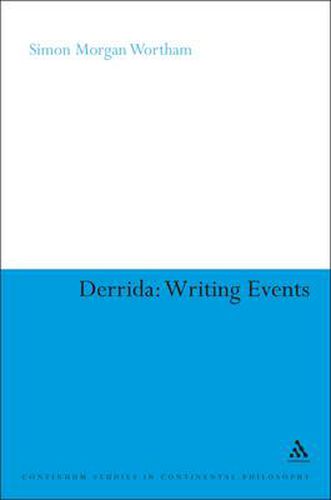Readings Newsletter
Become a Readings Member to make your shopping experience even easier.
Sign in or sign up for free!
You’re not far away from qualifying for FREE standard shipping within Australia
You’ve qualified for FREE standard shipping within Australia
The cart is loading…






Derrida wrote a vast number of texts for particular events across the world, as well as a series of works that portray him as a voyager. As an Algerian emigre, a postcolonial outsider, and an idiomatic writer who felt tied to a language that was not his own, and as a figure obsessed by the singularity of the literary or philosophical event, Derrida emerges as one whose thought always arrives on occasion. But how are we to understand the event in Derrida? Is there a risk that such stories of Derrida’s work tend to misunderstand the essential unpredictability at work in the conditions of his thought? And how are we to reconcile the importance in Derrida of the unknowable event, the pull of the singular, with deconstruction’s critical and philosophical rigour and its claims to rethink more systematically the ethico-political field. This book argues that this negotiation in fact allows deconstruction to reformulate the very questions that we associate with ethical and political responsibility and shows this to be the central interest in Derrida’s work.
$9.00 standard shipping within Australia
FREE standard shipping within Australia for orders over $100.00
Express & International shipping calculated at checkout
Derrida wrote a vast number of texts for particular events across the world, as well as a series of works that portray him as a voyager. As an Algerian emigre, a postcolonial outsider, and an idiomatic writer who felt tied to a language that was not his own, and as a figure obsessed by the singularity of the literary or philosophical event, Derrida emerges as one whose thought always arrives on occasion. But how are we to understand the event in Derrida? Is there a risk that such stories of Derrida’s work tend to misunderstand the essential unpredictability at work in the conditions of his thought? And how are we to reconcile the importance in Derrida of the unknowable event, the pull of the singular, with deconstruction’s critical and philosophical rigour and its claims to rethink more systematically the ethico-political field. This book argues that this negotiation in fact allows deconstruction to reformulate the very questions that we associate with ethical and political responsibility and shows this to be the central interest in Derrida’s work.